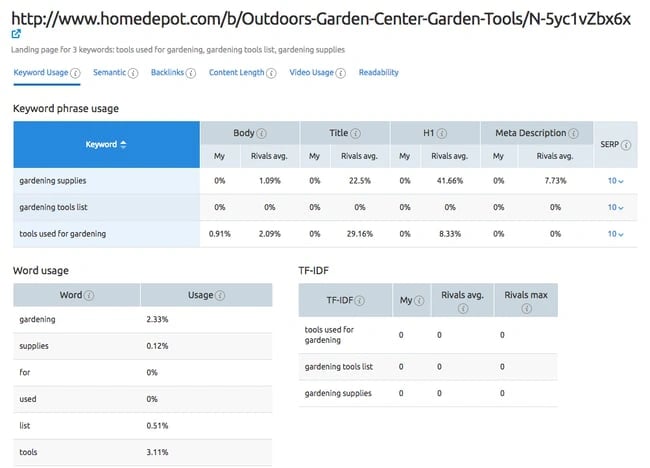Unlock the secrets of keyword density and learn how to boost your SEO rankings with our expert optimization tips.

Image courtesy of via DALL-E 3
Table of Contents
Introduction to Keyword Density
In the vast world of the internet, where blogs and websites compete for attention, the use of keywords plays a crucial role in helping search engines like Google understand what your content is about. This brings us to the concept of keyword density. Let’s explore what it means and why it’s essential for both blog writing and SEO.
What is Keyword Density?
Keyword density is simply a measure of how often a particular keyword or phrase appears in a piece of content compared to the total number of words on that page. In simpler terms, it shows how frequently your target keywords are used in your article or blog post.
Why is Keyword Density Important?
Now, you might be wondering, why does keyword density matter? Well, search engines like Google rely on these keywords to understand the relevance of your content to specific search queries. By strategically incorporating relevant keywords at an optimal density, you can improve the chances of your blog or website appearing higher in search results, attracting more visitors and potential readers.
Calculating Keyword Density
Calculating keyword density is a straightforward process that can help you optimize your blog for search engines. The formula for keyword density is quite simple: you just need to divide the number of times a specific keyword appears in your content by the total number of words, and then multiply that result by 100. This will give you the keyword density percentage for that particular keyword in your content.
Examples of Calculation
Let’s say you have a blog post that contains 1000 words, and the keyword you are targeting appears 10 times throughout the content. To calculate the keyword density, you would divide 10 (the number of times the keyword appears) by 1000 (total words), which equals 0.01. Multiplying this by 100 gives you a keyword density of 1% for that specific keyword in your content.
Finding the Right Keyword Density
When it comes to optimizing your content for search engines, finding the right keyword density is key. But what exactly does that mean, and how can you strike the perfect balance? Let’s delve into the world of keyword density and uncover the optimal strategy for your SEO efforts.

Image courtesy of seowind.io via Google Images
What is the Ideal Keyword Density?
Keyword density refers to the percentage of times a specific keyword appears in your content compared to the total word count. While there is no one-size-fits-all answer to the ideal keyword density, experts generally recommend keeping it between 1-3%. This range allows search engines to understand the topic of your content without overloading it with keywords.
Avoiding Keyword Stuffing
While using relevant keywords is crucial for SEO, overloading your content with them can lead to keyword stuffing. This practice not only makes your content unreadable and unengaging but can also harm your search engine rankings. To avoid keyword stuffing, focus on creating high-quality, informative content that naturally incorporates keywords in a meaningful way.
Tools to Check Keyword Density
In order to ensure that your blog writing is optimized for SEO, it is essential to check the keyword density of your content. Luckily, there are various tools available that can help you in this process. Let’s explore some of the popular online tools that you can use to check keyword density.
Online Keyword Density Checkers
One of the most commonly used tools for checking keyword density is the online keyword density checker. Tools like Small SEO Tools, SEO Review Tools, and Yoast SEO offer free keyword density checkers that analyze your content and provide insights into the frequency of your target keywords.
These tools typically highlight the keywords used in your content and calculate their percentage in relation to the total words present. This information can help you identify if you need to adjust the keyword density to improve SEO performance.
How to Use These Tools
When using online keyword density checkers, it’s important to input your content accurately. Copy and paste the text you want to analyze into the tool and enter the target keyword you are focusing on. The tool will then generate a report showing the keyword density percentage and any recommendations for optimization.
Pay attention to the keyword density suggestions provided by the tools. It’s crucial to strike a balance between optimizing for search engines and maintaining readability for your human audience. Use these tools as a guide to refine your content and enhance its visibility online.
Tips for Optimizing Keyword Density
One of the key factors in optimizing keyword density is the strategic placement of your keywords within your content. Make sure to include your target keywords in the title, headings, and meta description of your blog post. Additionally, sprinkle your keywords naturally throughout the body of your text. However, avoid overusing them, as this can lead to keyword stuffing, which can harm your SEO efforts.

Image courtesy of www.webfx.com via Google Images
Maintaining Readability
While it’s essential to include keywords in your content for SEO purposes, it’s equally important to ensure that your writing is readable and engaging for your audience. Remember, you are writing for real people, not just search engines. Use keywords in a way that flows naturally within your sentences and adds value to the overall content. Striking a balance between keyword optimization and readability is key to creating high-quality, SEO-friendly content.
Using Keywords Naturally
When you write a blog post or create content for a website, it’s essential to remember that real people will be reading it. That’s why it’s crucial to focus on writing for humans first. This means creating clear, engaging, and informative content that provides value to the reader. While using keywords is important for SEO, it should never come at the expense of readability or the overall quality of the content.
Balancing Keywords with Content Quality
Integrating keywords seamlessly into your content is a skill that takes practice. It’s important to find a balance between using keywords strategically and ensuring that the content remains valuable and engaging for your audience. Overloading your content with keywords can make it sound unnatural and spammy, which can turn readers away.
One way to strike a balance is to naturally incorporate keywords into your headlines, subheadings, and throughout the body of your content. This not only helps with SEO but also makes the content more relevant to the topic at hand. Remember, quality content that offers real value to your readers will ultimately drive more traffic and engagement than keyword-stuffed content.
Monitoring and Adjusting Keyword Density Over Time
Regularly checking your keyword density is crucial for maintaining optimal SEO performance. By monitoring the frequency of your target keywords in your content, you can ensure that you are striking the right balance between optimization and readability. Set a schedule to review your keyword density periodically to stay on top of any fluctuations that may occur.

Image courtesy of www.twaino.com via Google Images
Making Adjustments
When analyzing the performance of your keywords, be prepared to make necessary adjustments to your content. If you notice that certain keywords are over-represented or underutilized, consider rephrasing your content to better integrate them. By tweaking your keyword usage based on performance analysis, you can enhance the effectiveness of your SEO strategy over time.
Common Mistakes and How to Avoid Them
One common mistake that many writers make when trying to optimize keyword density is keyword stuffing. This involves overloading your content with the same keyword in an attempt to manipulate search engine rankings. However, keyword stuffing can harm your SEO efforts rather than help them. Search engines are now much smarter at detecting this practice and may penalize your website for it. To avoid keyword stuffing, focus on using your keyword naturally throughout your content. Aim for a keyword density that feels organic and not forced.
Ignoring Content Quality
Another mistake to avoid is solely focusing on keyword density and neglecting the overall quality of your content. While keywords are essential for SEO, they should not compromise the readability and value of your content. Producing high-quality, engaging content is just as important for ranking well in search engines. Ensure that your content provides relevant and useful information to your readers while incorporating your target keywords thoughtfully. Remember, your ultimate goal is to create content that resonates with your audience and keeps them coming back for more.
Conclusion
In conclusion, understanding and optimizing keyword density are crucial elements in improving the visibility and ranking of your blog or website in search engine results. By following the guidelines and tips provided in this article, you can effectively enhance your SEO strategy and attract more organic traffic to your content.

Image courtesy of blog.hubspot.com via Google Images
Remember, keyword density is about finding the right balance – not too little that your content goes unnoticed by search engines, and not too much that it becomes unnatural and harms user experience. By calculating, monitoring, and adjusting your keyword density over time, you can ensure that your content remains relevant and engaging while driving organic traffic to your site.
It’s essential to prioritize quality content that is tailored for human readers first, and then optimize it for search engines by strategically incorporating keywords. Avoid common pitfalls like keyword stuffing and focus on maintaining a natural flow of keywords within your content while preserving readability and engagement.
By implementing these strategies and best practices, you can effectively optimize your keyword density, improve your SEO performance, and ultimately reach a wider audience with your valuable content.
Want to turn these SEO insights into real results? Seorocket is an all-in-one AI SEO solution that uses the power of AI to analyze your competition and craft high-ranking content.
Seorocket offers a suite of powerful tools, including a Keyword Researcher to find the most profitable keywords, an AI Writer to generate unique and Google-friendly content, and an Automatic Publisher to schedule and publish your content directly to your website. Plus, you’ll get real-time performance tracking so you can see exactly what’s working and make adjustments as needed.
Stop just reading about SEO – take action with Seorocket and skyrocket your search rankings today. Sign up for a free trial and see the difference Seorocket can make for your website!
FAQs
What is keyword density, and why is it important?
Keyword density refers to the percentage of times a specific keyword appears in a piece of content compared to the total number of words. In simple terms, it shows how often a keyword is used in relation to the overall text. Keyword density is essential for Search Engine Optimization (SEO) because search engines use it to understand the relevance of a webpage to a particular search query. By having the right keyword density, you can improve the visibility of your blog or website in search engine results.
How do you calculate keyword density?
To calculate keyword density, you need to count how many times your target keyword appears in your content and divide that number by the total word count. Then, multiply the result by 100 to get the percentage. The formula is: (Number of times the keyword appears ÷ Total number of words) x 100. For example, if your keyword appears 5 times in a 500-word article, the calculation would be: (5 ÷ 500) x 100 = 1% keyword density.
What happens if keyword density is too high?
If the keyword density is too high, it can lead to keyword stuffing, which is the excessive and unnatural use of keywords in a piece of content. This practice can harm your SEO efforts as search engines may penalize your website for trying to manipulate rankings. Additionally, high keyword density can make your content seem spammy and difficult to read for users, negatively impacting user experience. It’s crucial to maintain a balance and use keywords strategically to avoid these issues.







